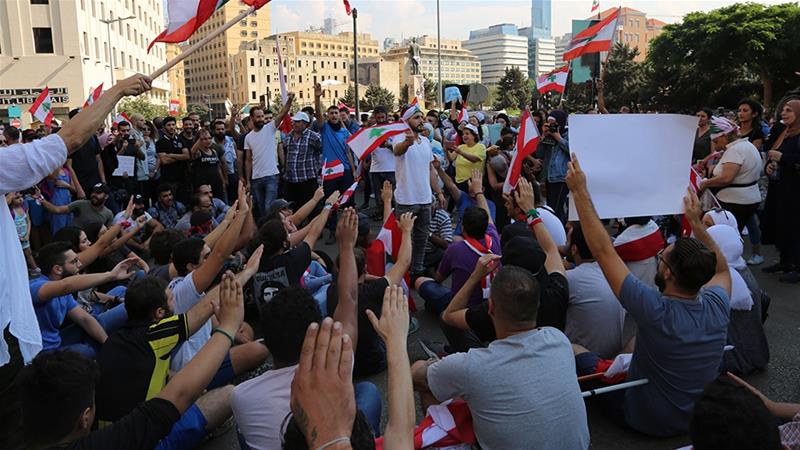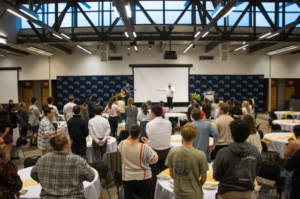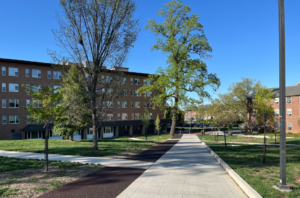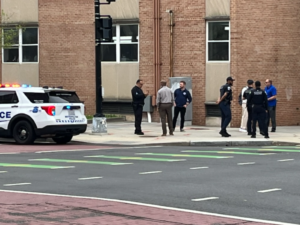For the Love of Lebanon

By Julianna Guthrie
Lebanese protesters took to the streets of Beirut on Thursday to fight a proposed 20-cent tax on WhatsApp calls, a service that is dear to many people in Lebanon. Combined with a widespread unsatisfied population, the people have been on the streets protesting ever since. Rayan Bashoun, a former Fulbright Scholar at Catholic University, was one of many who took to the streets in Beirut this week as part of an effort to alleviate the harsh restrictions that have been placed upon the Lebanese people.
The protestors consider the faulty parliamentary republic to be faulty due to the government administrations. The republic has been scrutinized for accusations of corruption with a failing economy. These two factors among others have protestors making demands for change according to the online newspaper AlJazeera in an article released earlier this week.
First, the protestors are asking for a new administration to take the place of the current one. In addition, they want to see a council of non-political judges to oversee country affairs until Lebanon can hold an election.
According to CNN, the protests had been anticipated for a long time, citing the conditions that the Lebanese people have faced in the last couple of years. Infrastructure is crumbling, the economy is failing, and about one third of the population lives below the poverty line, according to statistics provided by the World Bank.
Bashoun, a Lebanese native, is among the protestors this week.
“The demonstrators are upset because they refuse any additional taxes, knowing they have not attained their basic rights,” said Bashoun. “They have a dilapidated infrastructure and rising unemployment rates.”
Bashoun also noted how politicians are among the richest of the population. This dichotomy between politicians and the constituents they represent being at the root of the issues.
So far, the government has responded to the protests by axing the proposed WhatsApp tax and introducing a series of reforms. These include cutting the salaries of politicians, agreeing to instate an anti-corruption council by the end of the year, take action to privatise communication, and place no new taxes into the 2020 budget proposal. In addition to the reforms, a number of politicians and ministers have resigned from their positions.
Currently, institutions in Lebanon such as schools and banks have been and will remain closed until further notice. Additionally, government buildings are closed and some major roadways are blocked due to the large scale protesting.
The protestors have turned to the support of military being the most respected state institution in Lebanon, according to another article covering the protests daily in Al Jazeera.
“I have confidence in the army. It’s the only institution where they don’t care if you’re Christian or Muslim, and I hope they lead the next stage,” an army veteran claims
Protestors ask the military to stand in solidarity with them, safeguarding the rights of the people and arresting corrupt politicians.
The protests are not an organized movement and therefore, if not executed correctly, these protests could lead to another corrupt administration to take the current place of the current one.
According to Bashoun, protestors are looking toward the light in these dark times. They hope that their country will be able to gain its own autonomy.
“I and all protestors are hoping to see concrete and real changes, not fake promises. We are protestors from all areas and religious sects— with no exceptions,” Bashoun exclaims.
“Lebanese youths are on the frontlines of the demonstrations, and they have a dream of a promising future in their homeland.”








